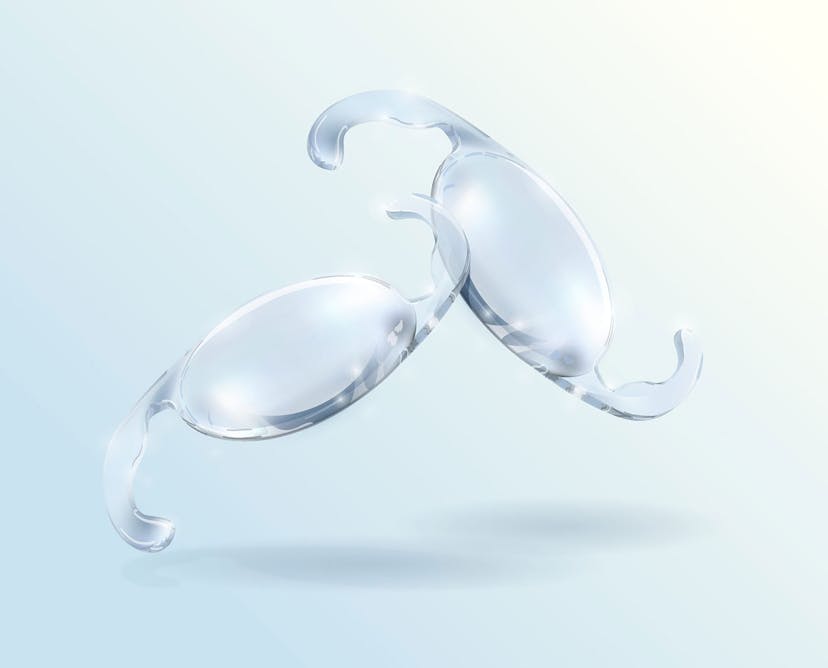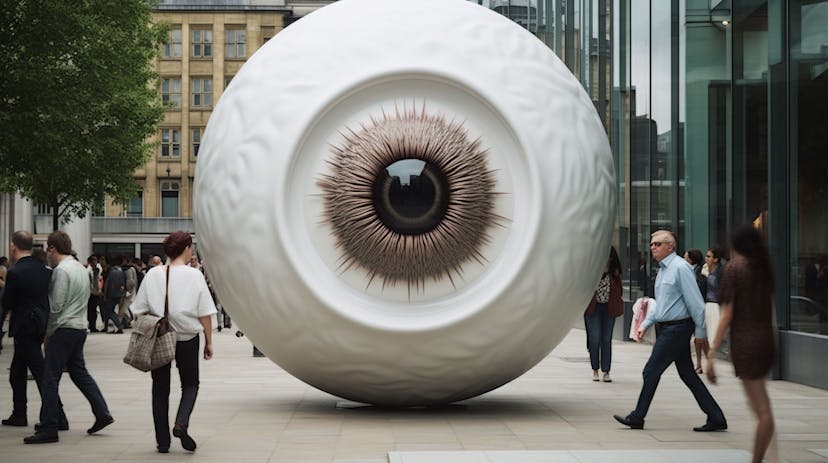
Cataract surgery is a highly successful procedure that restores clear vision for millions of people across the UK each year. However, some patients notice floaters in their vision after surgery, leading to concerns about whether this is a normal part of recovery or a sign of complications.
In this guide from the My-iClinic team, we’ll explore what floaters are, why they can appear after cataract surgery, when they might indicate a problem, and what treatment options are available for patients across the UK.
What Are Floaters?
Floaters are small, shadowy shapes that appear to drift across your field of vision. They are often described as:
- Black or grey specks
- Thread-like strands
- Cobweb-like formations
Floaters are caused by tiny clumps of gel or cells inside the vitreous, the clear gel-like substance that fills the eye. These clumps cast shadows on the retina, which the brain perceives as floaters.

Why Do Floaters Appear After Cataract Surgery?
It’s common for patients to notice floaters after undergoing cataract surgery, and there are several reasons for this:
- Increased Awareness – Before surgery, cataracts cloud the vision, masking minor floaters. Once the lens is replaced and clarity is restored, existing floaters become more noticeable.
- Changes in the Vitreous – The natural aging process causes the vitreous to shrink and pull away from the retina, leading to posterior vitreous detachment (PVD). Cataract surgery can accelerate this process, increasing the likelihood of new floaters appearing.
- Inflammation (Temporary Effect) – Some inflammation is normal after surgery. This can cause tiny particles to become more visible in the eye, mimicking floaters.
- Residual Lens Fragments – In rare cases, small fragments of the natural lens may remain in the eye after surgery, appearing as floaters.
- The process of cataract surgery itself causes movement of the natural fluids with fluid used during the surgery - this may displace existing floaters and make them cast shadows at new locations in the eye
- Rarely the increased movement of fluid during surgery results in a tug on the retina by strands of vitreous - this may result in extension of existing tears or development of a new tear in the retina
When Should You Be Concerned About Floaters After Cataract Surgery?
While floaters are often harmless, new or worsening floaters after cataract surgery should be monitored. Seek urgent medical attention if you experience:
- A sudden increase in floaters
- Flashes of light in your peripheral vision
- A dark curtain or shadow moving across your vision
These symptoms could indicate a retinal tear or detachment, a rare but serious complication that requires immediate treatment to prevent vision loss.

How Common Are Floaters After Cataract Surgery in the UK?
Floaters are not uncommon after cataract surgery. In the UK, optometrists and ophthalmologists report that many patients notice them in the weeks following surgery. However, in most cases, they become less bothersome as the brain learns to ignore them over time.
What Are the Treatment Options for Persistent or Severe Floaters?
For patients whose floaters significantly impact their vision or quality of life, several treatment options are available:
1. Observation & Adaptation
- Most patients gradually stop noticing floaters as their brain adapts to the new visual environment.
- If the floaters are mild, no treatment is required.
2. Laser Vitreolysis
- A non-invasive laser treatment that breaks up floaters into smaller, less noticeable particles.
- Available at some private eye clinics across the UK.
3. Vitrectomy (Surgical Removal of the Vitreous)
- A surgical procedure where the vitreous is removed (vitrectomy) and replaced with a clear solution.
- Modern vitrectomy is a safe and effective in removing bothersome floaters. Patients report great satisfaction after vitrectomy for floaters.
- Effective for severe cases but carries a small risk as retinal detachment and infection.
Preventing Complications After Cataract Surgery
To reduce the risk of complications like problematic floaters, it’s essential to follow post-surgery care guidelines, including:
- Attending all follow-up appointments with your eye surgeon.
- Reporting any sudden vision changes immediately.
- Avoiding strenuous activities that could result in an accidental knock on the eye during recovery.
Final Thoughts From The My-iClinic Team
It is normal to experience floaters after cataract surgery, and in most cases, they are harmless. However, if you notice a sudden increase in floaters, flashes of light, or a shadow in your vision, you should seek urgent medical attention, as these could be signs of a more serious issue.
For UK patients concerned about floaters after cataract surgery, speaking with an experienced eye specialist can help determine the best course of action. If you’re experiencing persistent floaters and want to explore treatment options, consult an eye clinic or optometrist for further evaluation.
Find out more by Speaking to our team









